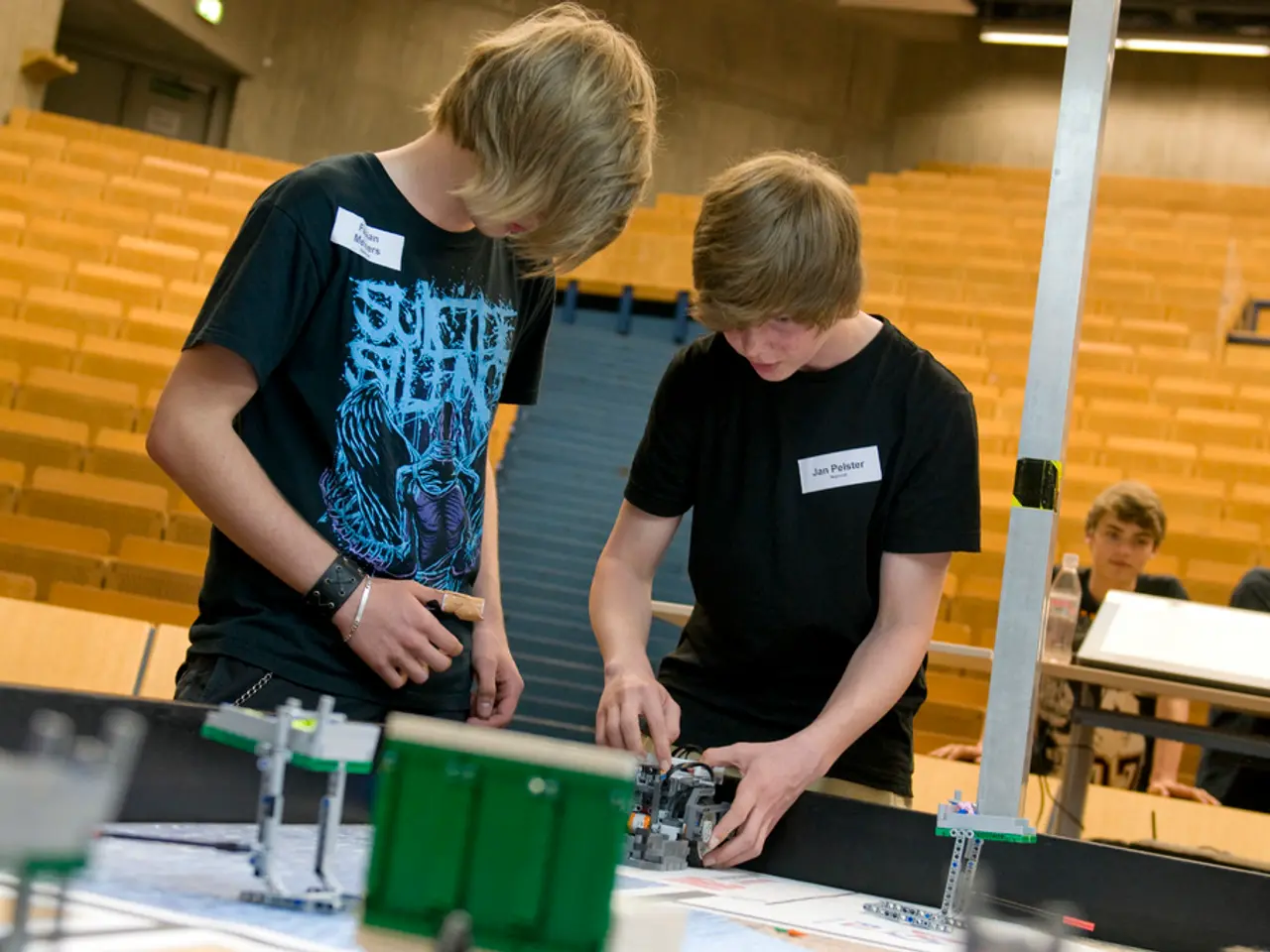Research and Growth Fostered Through Mentorship: Summer Soiree in the Lab
In the world of bioengineering, the importance of mentorship in shaping the next generation of researchers cannot be overstated. This is evident in the journey of Nathan Nguyen, an undergraduate researcher who found his personal and professional growth significantly influenced by his mentors.
Nguyen's research experience was not just a journey of scientific discovery, but also one of personal development. The collaborative environment of the bioengineering lab he joined over the summer was a breeding ground for ideas, with everyone contributing and helping one another. This sense of community made the often isolating work of research feel more connected.
Working in a lab full of graduate students, postdocs, and faculty initially made Nguyen feel intimidated. However, he soon found solace in the mentorship he received. His mentor, a Ph.D. student, provided valuable advice not only on academics and career options but also on the nuanced skills required for successful research.
The mentor-student relationship was pivotal in Nguyen's growth. He learned that mentorship in research is about teaching how to think, not just how to do an experiment. This was evident in the creative problem-solving, persistence after failure, and other skills he was taught. His mentor encouraged independent thinking and problem-solving, rather than providing direct answers.
Nguyen's research project focused on the development of a more sustainable protein purification method. Through this experience, he gained a deeper understanding of the research process, moving beyond the mere execution of experiments. He emphasizes the importance of finding caring mentors for undergraduate researchers, as they play a crucial role in shaping the research experience, learning, problem-solving, and personal development.
Asking questions, even when unsure, led to significant learning opportunities for Nguyen. He formed mentor relationships that continue to advise him in his academic and professional journey. His experience in the bioengineering lab was a place of learning and growth, not just experimentation.
Programmes like the Mayo Clinic SURF provide undergraduates with hands-on opportunities to explore health-related research, helping them discover their passions and interests while developing skills critical for biomedical careers. Such mentorship experiences are invaluable for students aiming for advanced research or clinical roles, contributing to their transformation into next-generation biomedical professionals.
In conclusion, mentorship in bioengineering undergraduate research labs is a crucial factor in shaping competent, confident, and career-ready future engineers. It combines technical training with leadership, inspiration, and professional development, fostering an environment that nurtures critical thinking, teamwork, and personal growth. For Nathan Nguyen, this mentorship was more than just a stepping stone in his academic career; it was a catalyst for his personal and professional development.
References: 1. Vogt, M., et al. (2016). The impact of undergraduate research mentorship on student learning and career readiness. Journal of Undergraduate Research, 12(1), 1-21. 2. Kuh, G. D., et al. (2010). High-impact educational practices: What they are, who has access to them, and why they matter. Association of American Colleges and Universities. 3. National Academy of Engineering. (2010). Understanding and expanding the impact of undergraduate research. Washington, DC: The National Academies Press. 4. National Research Council. (2012). Undergraduate STEM education: A decade of change. Washington, DC: The National Academies Press. 5. Mayo Clinic. (n.d.). SURF - Summer Undergraduate Research Fellowship. Retrieved from https://www.mayoclinic.org/research/surf/art-20084905
- Nathan Nguyen, during his tenure as an undergraduate researcher in bioengineering, found that his senior thesis was not only a scientific exploration, but also a means for personal growth and education-and-self-development.
- Beyond the practical implications of undergraduate research in science, Nguyen realized the profound impact of mentorship on his mental-health, as his mentor guided him through various challenges, instilling in him the importance of mental-health in research and the broader context of health-and-wellness.
- Participation in undergraduate research programs like the Mayo Clinic SURF allowed Nguyen to delve into health-related research, thereby fostering his passion for science and providing him with essential skills for his future career in education-and-self-development, as well as potential roles in health-and-wellness.




